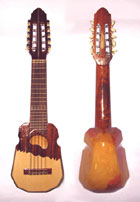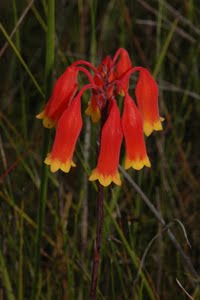 Yesterday, at the CTC in Robertson, David Tranter's book - "Nature and Society" was officially launched.
Yesterday, at the CTC in Robertson, David Tranter's book - "Nature and Society" was officially launched.
Local poet and author, Arthur Jackson gave an excellent introductory speech. He made the point that the book is simple in its language, but profound in its meanings. It has a message for us all. David Tranter then talked about the process of writing such a book, so different from his more familiar "genre" of scientific reports and articles. Penny Osterhaus, who illustrated the book, spoke of how much she had enjoyed the process of working with David, who had very clear ideas of the types of illustrations he wanted for the various sections of the book.
Anni Heino spoke about the physical design of the book, speaking both for herself and Ian Foster, who as Graphic Designer, was largely responsible for the "look" of the book, and especially its cover photo, as well as the page layout. Anni had the task of translating the ideas into the physical reality of a totally type-se, formatted and illustrated document, still in electronic form, on a CD-ROM, ready to be sent to the printers. Anni will also be helping David again, in the near future, by creating a web site for the book.
Rebecca Price ("B.J."), the Mananger of the CTC thanked the speakers, and then introduced Nick Rheinberger. Nick is a musician, in addition to his day job with ABC Illawarra, as presenter of the Morning Show on 97.3 FM. In his modest way, he claimed to be a children's entertainer, primarily, but he did a fine job of giving us a musical impression of the themes of the book. He included a song by the Celibate Rifles, an event surely sufficiently rare in itself as to be symbolic of an endangered planet. The particular song title I cannot recall, but it did pay homage to the beauty of trees and fishes, with the refrain: "I hope there'll be some left for us". Ever so slightly consumer-centric I thought, but at least addressing the theme of the endangered planet.
 The last item Nick played on a "charango". This was suitably symbolic in many ways, as the instrument is a Bolivian musical instrument, traditionally made using the carapace of an Amadillo (see photo) - an endangered South American Anteater.
The last item Nick played on a "charango". This was suitably symbolic in many ways, as the instrument is a Bolivian musical instrument, traditionally made using the carapace of an Amadillo (see photo) - an endangered South American Anteater.
Nick's own instrument is made from Cedar (I don't know for sure, but it might well be made from the endangered Australian Red Cedar, (Toona ciliata) which was a very popular timber for early Australian colonial cabinet-makers - the reason for its own endangered status today.)
The photo at the top is of a timber-cutter preparing to "harvest" an ancient "Red Cedar" tree. Source: CSIRO, Forestry and Forest Products.
 This timber is still popular with Australian craftsmen who specialise in hand-made musical instruments. Nick sang this little song, having coached the audience to sing along with the repeated refrain from the song: "Forever, Forever". A truly suitable refrain - for a musical interpretation of David's book.
This timber is still popular with Australian craftsmen who specialise in hand-made musical instruments. Nick sang this little song, having coached the audience to sing along with the repeated refrain from the song: "Forever, Forever". A truly suitable refrain - for a musical interpretation of David's book.
"B.J.", thanked everyone for attending, and thanked the Robertson Senior Citizens Association for doing the catering. She then invited us to enjoy some refreshments, and to buy the book ($25 ) and read it, and read it again, and then to pass it on to a friend.
"Nature and Society" will continue to be on sale through the CTC in Robertson.

2 comments:
Gidday Dennis,
After reading the "Mr Potato Head" story, I was browsing through your blog and came across this. Just thought I'd let you know that my charango was made in Bolivia, so it's a South American cedar, not the Australian one. It's possibly Western Red Cedar, which is very common. My house is covered in Western Red Cedar weatherboards, for instance. My greek baglama (made in Wollongong) also has a Cedar top, as does my Canadian 12-string. Something about the sound of that timber appeals to me, it seems.
Hi Nick
Nice to hear from you again, and good to have the record set straight on the South American origins of your Charango.
Cheers
Denis
Post a Comment